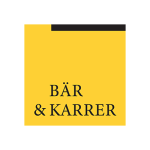Share-based incentive share plans are very popular in Switzerland among corporations of all sizes as they increasingly provide the only possibility of a tax-free private capital gain for their employees. In this context, on October 30 2020, the Swiss Federal Tax Administration (SFTA) published the amended Circular Letter No. 37 ‘Taxation of Employee Participations’ (Circular 37), strengthening the uniformisation of the tax treatment of employer stock across Swiss cantons.
The alignment of the tax consequences from participation plans is expected to increase Switzerland's attractiveness as a location for start-ups and established companies alike. This article provides a broad overview of the key amendments from the updated Circular 37, which came into force on January 1 2021. These amendments mainly concern employer stock and not other forms of incentive awards (options, restricted stock units, phantom stock, stock appreciation rights or similar), for which reason the latter are not further discussed herein.
Employee incentive plans
By implementing an employee incentive plan, the employer usually offers selected employees a scheme that grants them the right to participate in the equity of the employer and strengthens the employees’ relationship with, and commitment to, the employer.
A qualifying employer stock under Swiss tax law
Administrative practice and case law interpret the term ‘employer stock’ broadly. Any acquisition of stock issued by the employer or a related party, in connection with an employment relationship, is considered as employer stock, including the acquisition of such stock by a future employee in view of a future employment relationship, and irrespective of whether employer stock is purchased from the employer itself or from a third party acquisition . According to a recent federal supreme court decision, the acquisition of a large shareholding (in casu a 50% stake in a company) can also qualify as employer stock.
Not classified as employer stock are shares acquired at the time of incorporation of a company or shortly thereafter (so called ‘founder shares’). The same is true for shares bought by an employee at market conditions in the context of a third-party transaction (see below), i.e. at conditions which would also have been offered to non-employees.
Distinction between fair market value and formula value
The question whether employer stock has a fair market value or a formula value is important for determining the tax consequences at grant and at disposal. While the stock of listed companies generally has a fair market value, the stock of unlisted companies – to which category start-ups generally belong – only has a fair market value at times, i.e. when there has been a substantial third-party transaction over such stock. If a fair market value is unavailable, the value of the company's equity needs to be determined based on a suitable valuation method recognised by the tax authorities (resulting in a so-called ‘formula value’).
Circular 37 newly suggests that the so-called ‘practitioners' method’ – which is widely used in share valuations for Swiss wealth tax – results in an appropriate formula value for unlisted stock. The practitioners' method calculates the fair market value of a company based on a weighted average of the book equity (single weighting) and the capitalised historic earnings (double weighting), with the book equity being considered the minimum value. However, since the practitioners' method might not be suitable for every market sector, other valuation methods (e.g. turnover or EBITDA multiples) may be applied, if they are suitable and appropriate for the specific market sector. Once determined, a chosen method must be maintained over time.
Timing of taxation of employer stock
In case of an employer stock award, the difference between the fair market value or, as the case may be, the formula value of the employer stock and the lower offer price represents taxable income, which is subject to tax at the time of grant of the stock.
No tax is due on such difference in case of restricted employer stock, to the extent a permitted discount of 6% per year of blocking period is not exceeded (the maximum discount is 44.161% for a 10-year blocking period).
Tax-free private capital gain from the sale of employer stock
As a general rule and fundamental taxation principle in Switzerland, private capital gains from movable property realised by Swiss resident individuals are exempt from Swiss income tax. Accordingly, since employer stock is taxed at grant, capital gains derived from a later sale of such stock are generally exempt from income tax.
The principle of tax-free capital gain applies without restrictions in the case of shares that were either purchased at fair market value, or for which the employee was taxed at grant based on a fair market value. In the case of employer stock without a fair market value, for which a formula value was calculated at grant, the capital gain may not be entirely tax free. This is the case if the valuation method is changed between the grant and the sale of the shares; the portion of the capital gain exceeding the formula value at the time of sale – the ‘excess gain’ – is considered as salary and subject to income tax.
This excess gain is not taxed in case of a sale at fair market value (e.g. in case of a takeover by a third party or an initial public offering), if such sale occurs after a five-year holding period of the shares by the employee. In the past, this five-year exception was applied in a few Swiss cantons only, and Circular 37 extends it to all of Switzerland.
Ruling confirmation by the tax authorities
It is recommended to seek pre-approval from tax authorities of employee participation plans, in particular in view of a confirmation of the fair market value, or of the valuation method used for the valuation of employer stock. Since in Switzerland tax jurisdictions are with the cantons, such rulings should be asked for in all relevant cantons in which employees receiving stock awards are residents.
Christoph Suter
Partner, Bär & Karrer
E: christoph.suter@baerkarrer.ch
Kerim Tbaishat
Associate, Bär & Karrer
E: kerim.tbaishat@baerkarrer.ch

